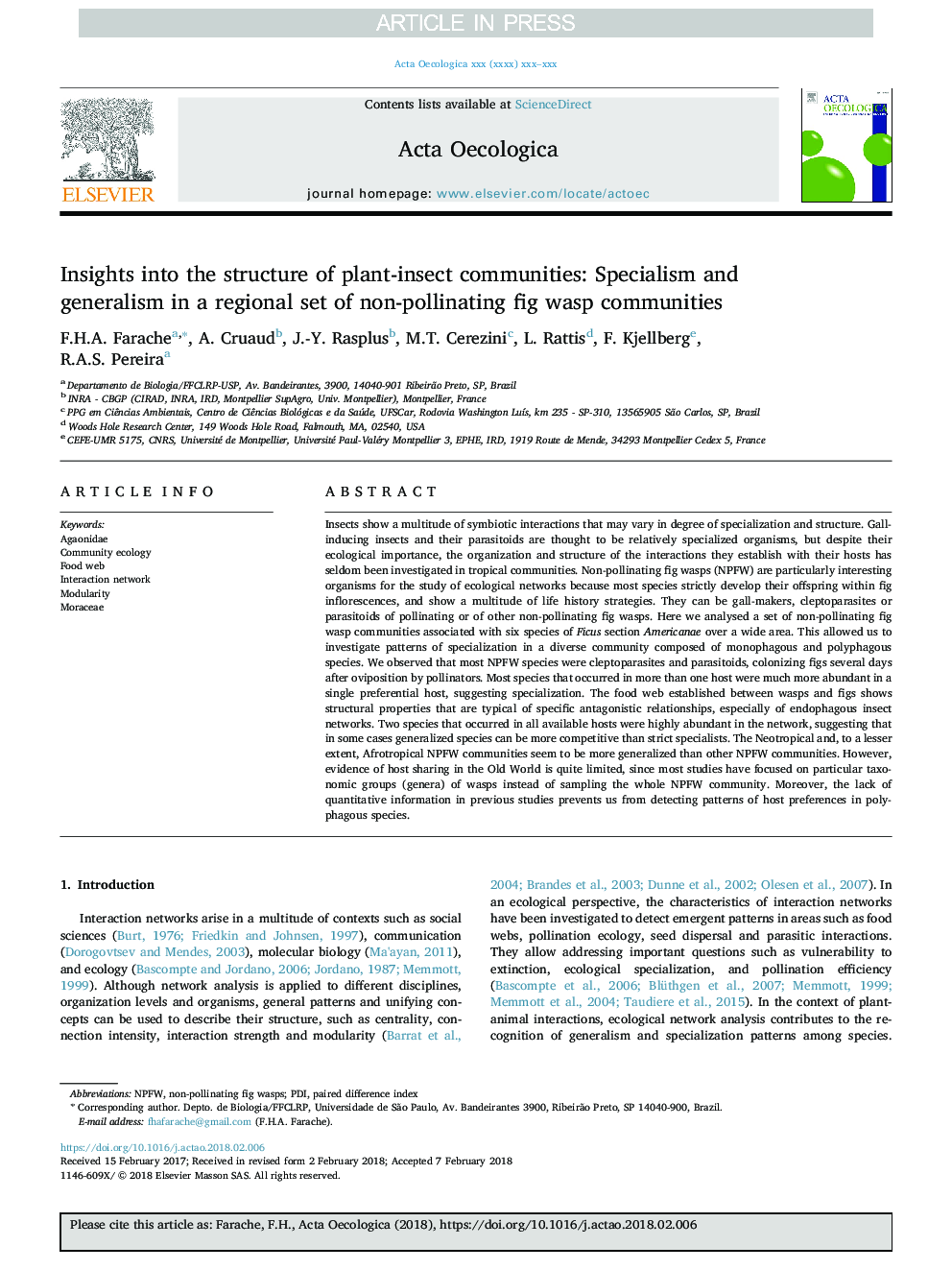| کد مقاله | کد نشریه | سال انتشار | مقاله انگلیسی | نسخه تمام متن |
|---|---|---|---|---|
| 8846478 | 1617682 | 2018 | 11 صفحه PDF | دانلود رایگان |
عنوان انگلیسی مقاله ISI
Insights into the structure of plant-insect communities: Specialism and generalism in a regional set of non-pollinating fig wasp communities
ترجمه فارسی عنوان
مقدمه ای بر ساختار جوامع حشرات: تخصصی و عمومی در یک مجموعه منطقه ای از جوندگان انجیر بدون گرده افشان
دانلود مقاله + سفارش ترجمه
دانلود مقاله ISI انگلیسی
رایگان برای ایرانیان
کلمات کلیدی
موضوعات مرتبط
علوم زیستی و بیوفناوری
علوم کشاورزی و بیولوژیک
بوم شناسی، تکامل، رفتار و سامانه شناسی
چکیده انگلیسی
Insects show a multitude of symbiotic interactions that may vary in degree of specialization and structure. Gall-inducing insects and their parasitoids are thought to be relatively specialized organisms, but despite their ecological importance, the organization and structure of the interactions they establish with their hosts has seldom been investigated in tropical communities. Non-pollinating fig wasps (NPFW) are particularly interesting organisms for the study of ecological networks because most species strictly develop their offspring within fig inflorescences, and show a multitude of life history strategies. They can be gall-makers, cleptoparasites or parasitoids of pollinating or of other non-pollinating fig wasps. Here we analysed a set of non-pollinating fig wasp communities associated with six species of Ficus section Americanae over a wide area. This allowed us to investigate patterns of specialization in a diverse community composed of monophagous and polyphagous species. We observed that most NPFW species were cleptoparasites and parasitoids, colonizing figs several days after oviposition by pollinators. Most species that occurred in more than one host were much more abundant in a single preferential host, suggesting specialization. The food web established between wasps and figs shows structural properties that are typical of specific antagonistic relationships, especially of endophagous insect networks. Two species that occurred in all available hosts were highly abundant in the network, suggesting that in some cases generalized species can be more competitive than strict specialists. The Neotropical and, to a lesser extent, Afrotropical NPFW communities seem to be more generalized than other NPFW communities. However, evidence of host sharing in the Old World is quite limited, since most studies have focused on particular taxonomic groups (genera) of wasps instead of sampling the whole NPFW community. Moreover, the lack of quantitative information in previous studies prevents us from detecting patterns of host preferences in polyphagous species.
ناشر
Database: Elsevier - ScienceDirect (ساینس دایرکت)
Journal: Acta Oecologica - Volume 90, July 2018, Pages 49-59
Journal: Acta Oecologica - Volume 90, July 2018, Pages 49-59
نویسندگان
F.H.A. Farache, A. Cruaud, J.-Y. Rasplus, M.T. Cerezini, L. Rattis, F. Kjellberg, R.A.S. Pereira,
